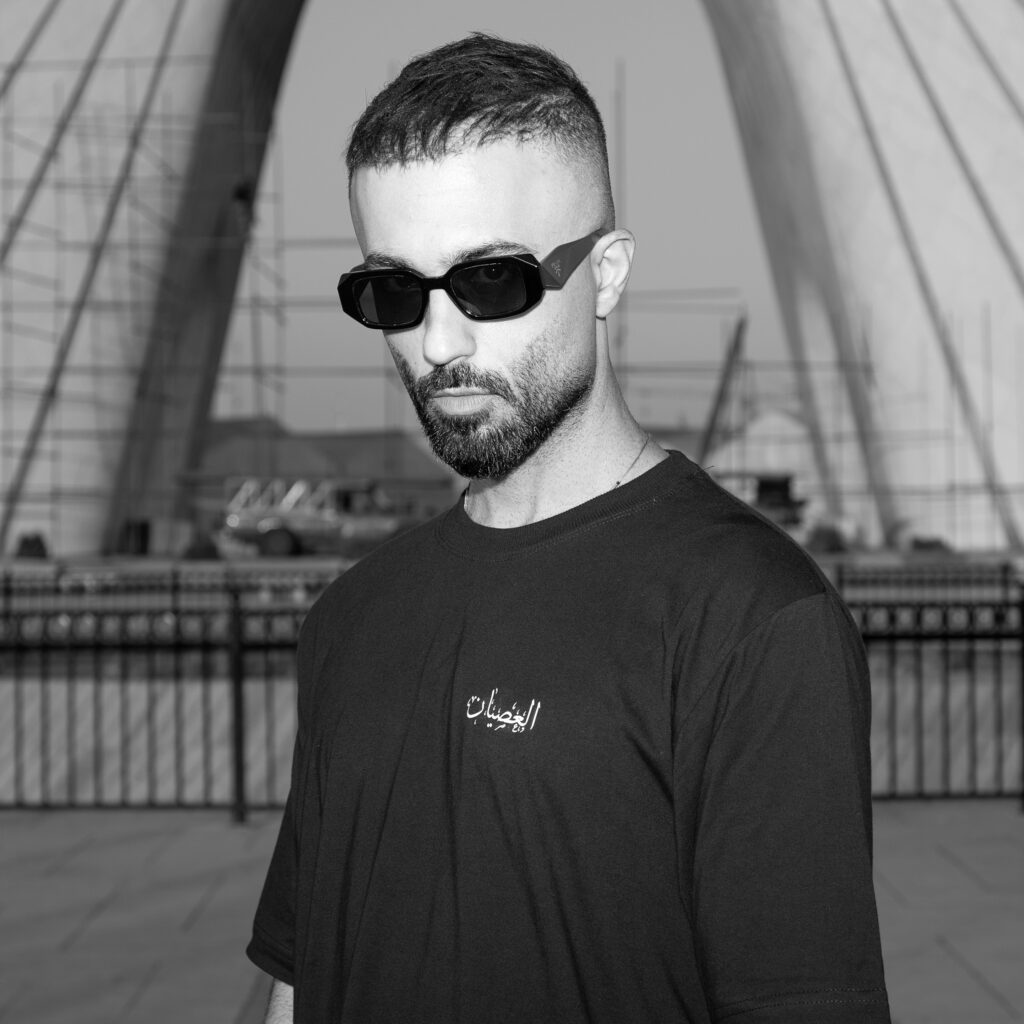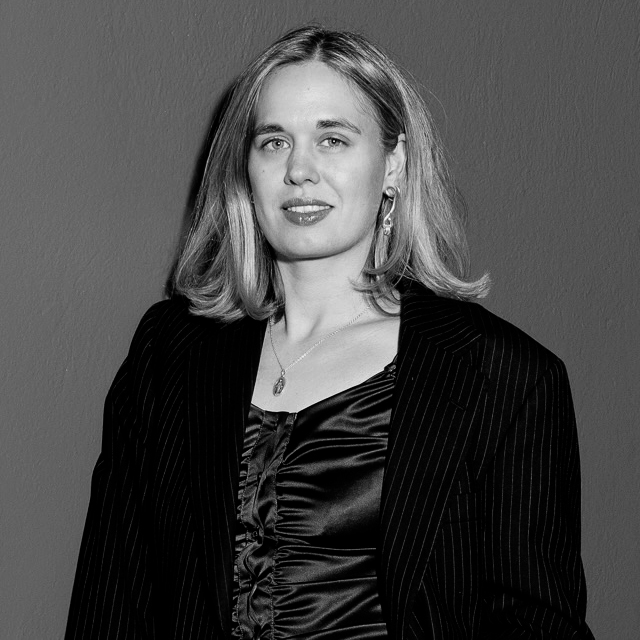Summit Three, 2025
… And the Rest Were Those Nomads Who Found the Black Holes.
Our approach to perceiving the world starts from our concept of the Earth, the geographical plateaus, and intensities that form our reality. In A Thousand Plateaus, Deleuze and Guattari expands on the meaning of territory and the forces that encode the earth into territories and decode them. The third edition of The Tehran Summit, titled «… And the Rest Were Those Nomads Who Found the Black Holes.», is dedicated to a state of in-betweenness; moving beyond set concepts of territories, disciplines, and dichotomies, and delving into the unknown.
Summit 03 will probe a geohistorical terrain where the anthropocenic concepts of history, chronology, and logical order is replaced by embracing a full spectrum of forces at play; human, non-human, organic, and inorganic all caught in the flux of creation and dissolution. In this narrative, space becomes not merely a backdrop for human production but a dynamic construction of relations where beings, materials, and non-definable forces converge, each contributing and complicit to an ever- evolving Chaosmos. In this geohistory, geological formations, climate upheavals, social turbulences, and economic shocks are all intersected, bridging deep time with human history and expanding our concepts of past events and latent futures.
The nomad here becomes an embodiment of a mindset that defies territorialized space, and static values, wielding the deleuzian war-machine against the state apparatus and its axioms. As agents of deterritorialization, the nomads embrace a rhizomatic, peripheral mode of thought/living that resists hierarchies, seeking lines of flight and new realities. Departing from this web of thoughts, Summit 03, will delve into entangled layers of geographies, histories, spaces, and time to map out new exits and potentials – those black holes where new desires and possibilities emerge.
Speakers:
Night 1, May 19
A conversation between Reza Negarestani & Mohammad Salemy: “Cyclonopedia revisited: 2007–23”
Reza Negarestani is a philosopher. He has contributed extensively to journals and anthologies and lectured at numerous international universities and institutes. His current philosophical project is focused on rationalist universalism beginning with the evolution of the modern system of knowledge and advancing toward contemporary philosophies of rationalism, their procedures as well as their demands for special forms of human conduct. He is the author of Cyclonopedia (re.press, 2008) and Intelligence and Spirit (MIT Press, Urbanomic, 2018).
Mohammad Salemy is an independent Berlin-based artist, critic and curator from Canada. He holds a BFA from Emily Carr University and an MA in Critical Curatorial Studies from the University of British Columbia. He has shown his works in Ashkal Alwan’s Home Works 7 (Beirut, 2015), Witte de With (Rotterdam, 2015) and Robot Love (Eindhoven, 2018). His writings have been published in e-flux, Flash Art, Third Rail, Brooklyn Rail, Ocula, Arts of the Working Class and Spike. Salemy’s curatorial experiment For Machine Use Only was included in the 11th edition of Gwangju Biennale (2016). Together with a changing cast, he forms the artist collective Alphabet Collection. Salemy is the Organizer at The New Centre for Research & Practice. He has been the cofounding Organizer of The New Centre since 2014 and the editor-in-chief of its publishing arm, Triple Ampersand. He is also the editor of “For Machine Use Only: Contemplations on Algorithmic Epistemology” (&&&, 2016) and “Model is the Message: Incredible Machines Conference 2022” (&&&, 2023).
Night 2, May 20
Carl Olsson
“Space is An Angler And We Are The Fish”
Carl Olsson is a writer and theorist working with histories and philosophies of science and spatial theory. His work touches on the human self-image, different concepts of freedom in nature, and transcendental philosophy. Carl recently completed a PhD in Human Geography at Newcastle University. He contributed to the second cycle of The Terraforming at Strelka Institute, has been a visiting scholar at Waseda University, and is an instructor at The New Centre for Research & Practice. He has written for Urbanomic, ŠUM, and different geography journals and edited books.
Night 3, May 22
Renzo Martens
“What’s up with Renzo Martens? Attempting to connect museums to the plantations that funded them. (2010-2025)”
Dutch artist Renzo Martens (b. 1973) studied political science and art. His early films Episode I (2003) and Episode III: Enjoy Poverty investigated the asymmetries of power between spectators and subjects of war and poverty in contemporary art and media. During this period, Martens observed that none of the many European art museums funded by profits extracted from plantations had ever established a program to reach out to the communities living and working on them. In 2010 he founded the Institute for Human Activities to connect museums to one of these communities and to realize a new world: not symbolically, but also in material terms. In the Democratic Republic of Congo, on the first plantation Unilever ever established, Martens assumed the mantle of a European museum and over time, communally, investigated what one such program could be. Since then, the Congolese plantation worker art collective Cercle d’art des travailleurs de plantation congolaise (CATPC), has mounted the ‘best show of the year’ (New York Times, 2017) and has represented the Netherlands at the 60th Venice Biennial (2024). CATPC uses their legitimacy and capital to purchase the land once taken by Unilever and its subsidiaries to restore their sacred forest and to create a sustainable livelihood for the communities inhabiting the lands today. On that land, a ‘white cube’ was built, a quintessential museum space, which was subsequently sentenced by an Ingdigenous court to return the land. To date, CATPC has reclaimed and reforested hundreds of hectares of exhausted plantation land. CATPC is the first community of plantation workers ever to be listed in ArtReview’s Power 100.
Recently, Martens and CATPC have begun to forge solidarities with plantation communities across other parts of the world, and in Martens’s native province of Zeeuws-Vlaanderen, the Netherlands, they have planned to build a new centre to connect the arts of the global working classes.
Select exhibitions (both independent and with CATPC) include Manifesta 7 (2008), the 6th and 7th Berlin Biennial (2010, 2012) , Walker Art Center, (2013), Artes Mundi, (2014) SculptureCenter (2017) the 19th and 21 Sydney biennial, (2024, 2018) the 60th Venice Biennial, (2024) as well as exhibitions, presentations and screenings at Stedelijk Museum Amsterdam, Blaxtarlines Kumasi, SCCA Tamale, National Museum Kinshasa, Museum Macan Jakarta, Picha Lubumbashi, LagosPhoto, Lagos, Sharjah Art Foundation, Mori Art Museum Tokyo, Tate Modern, London, ICA London, Wiels Brussels, Centre Pompidou Paris, Tate Modern London, and KunstWerke Berlin. Martens is currently completing a Ph.D. on ‘reverse gentrification ‘ at Ghent University and is assisting CATPC with the production a new feature documentary film, coproduced by BBC and Arte.
Night 4, May 23
Shuddhabrata Sengupta
(Raqs Media Collective)
“Restless Contemplation”
Shuddhabrata Sengupta is an artist, curator and writer with the Raqs Media Collective, Delhi.
Night 5, May 24
Hito Steyerl
“Art in The Age of Authoritarian Chatbots”
Hito Steyerl, filmmaker writer Berlin
Nigh 6, Night 25
Dora Garcia
“Transhistorical Transoceanic Transfeminisms”
Dora García is an artist, teacher and researcher who lives and works in Oslo. She has developed works on the GDR political police (the film Rooms, Conversations, 24′, 2006, first presented at GfZK, Leipzig, Germany), on the comedian Lenny Bruce (Just because everything is different… Lenny Bruce in Sydney, one-time performance, Sydney Biennale, 2008) or on the rhizomatic associations of antipsychiatry (Mad Marginal book series since 2010, and The Deviant Majority, film, 34′, 2010, part of her performance project The Inadequate, first presented at the Spanish Pavilion, 54th Venice Biennale). She has used classical TV formats to research Germany’s most recent history (Die Klau Mich Show, Documenta13, 2012), frequented Finnegans Wake reading groups (The Joycean Society, 53′, 2013), created meeting points for voice hearers (The Hearing Voices Café, since 2014) and researched the crossover between performance and psychoanalysis (The Sinthome Score, 2013, and Segunda Vez, 2018). In 2018-24 she developed the film project Amor Rojo, on Marxist feminist Alexandra Kollontai and the impact of her legacy on Third-World, intersectional transfeminisms.
Curators:

Based in Tehran, Erfan Ghiasi is a cultural saboteur and curator out of necessity who shatters realities and speculates new possibilities. Drawing on the concept of حَرْبَة (ḥarba) – a term signifying both “weapon” in Arabic and “cunning” in Farsi —he crafts interventionist happenings and installations that investigate the intersections of Geohistory, (counter-)narratives of control, worldmaking, and spatial politics, framed within the philosophy of Speculative Realism.
He expanded his curatorial experience by participating in the #5 Autumn School of Curating, held in Cluj, Romania, in 2023, and the #6 Curatorial Intensive South Asia (CISA), an initiative of the Khoj International Artists’ Association and the Goethe-Institut / Max Mueller Bhavan, in New Delhi, India, in 2024. He is also recognized as the co-founder and curator of the Tehran Summit and the Tehran Biennale, showcasing his commitment to fostering discourses on contemporary aesthetics and philosophy, exploring new dynamics in public spaces, and collective experience, and stimulating cultural exchange within his local community and beyond.

Una Mathiesen Gjerde (b. 1993) is a Norwegian curator based between Oslo and Paris. Her research interests and curatorial work is centered around questions relating to precariousness, work ethics, economic models, and distribution systems, especially in relation to unionizing. Since 2022, she has been the director of the exhibition venue and artist union BO, The Association of Visual Artists Oslo. She is the former Head of Production for Fotogalleriet Oslo. Aside her directorial position, Mathiesen Gjerde works as a freelance curator. Her recent projects include the exhibition Travail Utile, Fatigue Inutile for Encooore (Biarritz, 2025), the exhibition and seminar program Hothouse Flowers held between Podium, the University of Oslo Botanical Garden, and Kunstnernes Hus Kino, in collaboration with The Institute for Postnatal Studies in Madrid (Oslo, 2024), and the Tehran Summit 02 and 03, curated with Erfan Ghiasi for respectively Pachinko and BO (Tehran and Oslo, 2024 and 2025).
In 2021, Mathiesen Gjerde established the film and production company Amfitrite Produksjon AS, together with the artist and director Marin Håskjold.
Mathiesen Gjerde holds a MA in Art History from Copenhagen University, and a BA in ‘Cultural Entrepreneurship’ from Uppsala University. She has also studied French, Finance, and Social Economics. Mathiesen Gjerde was a part of CuratorLab 2021/2022 at Konstfack, University of Arts, Crafts and Design in Stockholm, and the Fondazione Sandretto Re Rebaudengo’s Young Curators Residency Programme in Madrid in 2023.